7 Most Popular Questions About Feng Shui
And Clear Answers From an Expert
On the internet and bookshelves, you can find many tales and contradictions about feng shui, not to mention that feng shui is often presented as something related to superstitions, mysticism, and positive psychology.
Indeed, the esoteric market needs such information. However, there is also the other side of the coin, where feng shui is successfully applied in the design and architecture of private and commercial spaces. So, let's clarify the situation and answer the most frequently asked questions from readers with Irina Simakova.
Irina Simakova is a Feng Shui Consultant and a member of the Association of Feng Shui in Great Britain and Europe (FSS) and the International Feng Shui Forum (MFFSh). She believes that a home is a mirror reflection of a person’s life. Everyone can change their life by transforming the space around them.
1. How to Choose the Right Color for a Room?
In residential interiors, the floor should be the darkest (associated with earth), the ceiling - lightest (sky), and the walls - of medium tone (surroundings). Prefer neutral shades that will serve as a background for furniture and decor.
Also, don't forget about accent colors - they are essential for creating dynamics in interior design and can balance the atmosphere depending on the direction of light: for example, to "cool down" a south-facing room or to "warm up" a north-facing one.
Learn more about how color influences the atmosphere in your home: Feng Shui Experience.
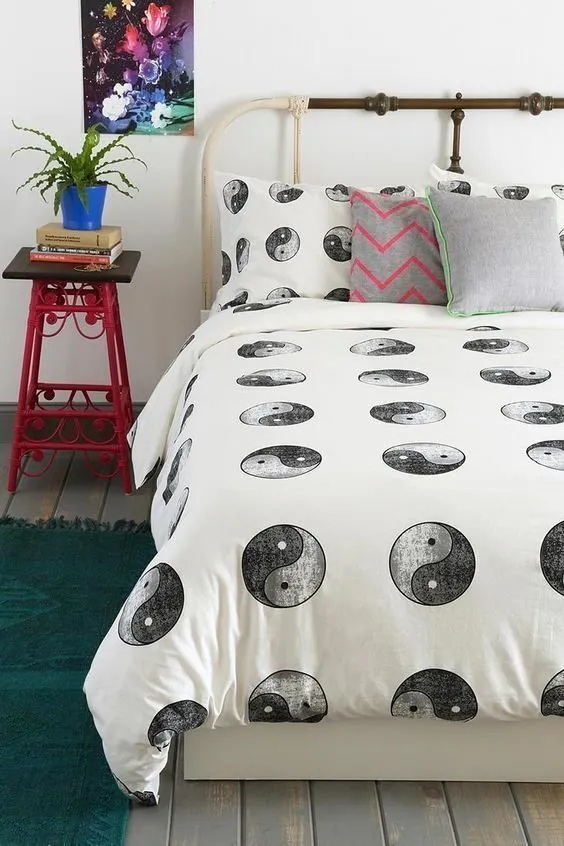
2. What to Do in the Career Sector to Improve Your Financial Situation?
Anything you want! But seriously, dividing space into eight zones (love, career, children, helpers, etc.) is a simplified method that is often mistaken for feng shui. This approach was invented in the middle of the 20th century in the USA to attract more clients, as it is very easy to apply.
Although this method is based on the concept of Bagua (eight directions), unfortunately, it relates more to common positive psychology. In feng shui, the main thing is to create a proper working atmosphere so that it becomes easier for a person to work and advance in their career.
Remember 6 Rules for Proper Setup.

3. Where Is the Best Place to Put a Money Tree?
The belief that a money tree brings luck in finances is just a belief. In feng shui, plants mean living energy that not only provides aesthetic pleasure but also improves the microclimate in a home.
The main rule in choosing indoor plants is to avoid drooping plants and those with sharp leaf shapes, particularly cacti.
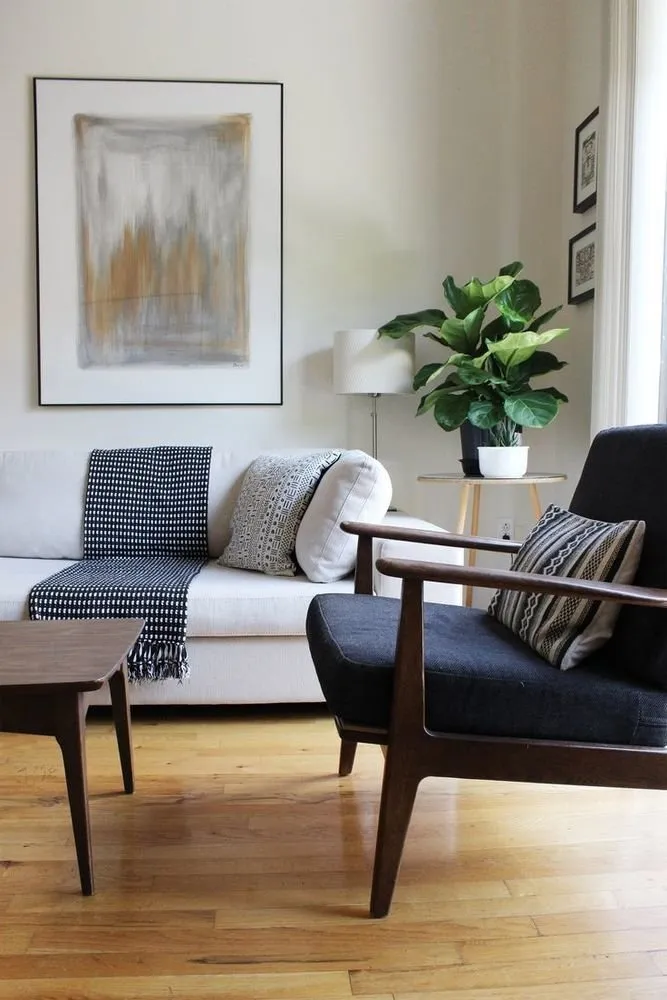
4. What Symbols Are Needed for Home Protection and Where to Place Them?
The answer lies in the question itself. Symbols work at a psychological level and have no direct relation to feng shui, floor plans, furniture placement, color choices, or patterns. Moreover, every culture has its own symbols of love, prosperity, and protection.
If you want to protect your home with a symbol, it doesn’t have to be something Chinese. It would even be better if you created the symbol yourself. But all of this has nothing to do with feng shui.
We tell you how to use intuition to improve your home.

5. In Which Room Is It Better to Place a Child's Bedroom?
A child’s bedroom should be located closer to the entrance than the parents' bedroom. This is due to how the layout reflects the family hierarchy. Parents are responsible for the family’s well-being and control children, not vice versa, so the parents' bedroom should be positioned in the most favorable spot.
Expert Opinion: 6 Reasons to Decorate a Child's Room According to Feng Shui.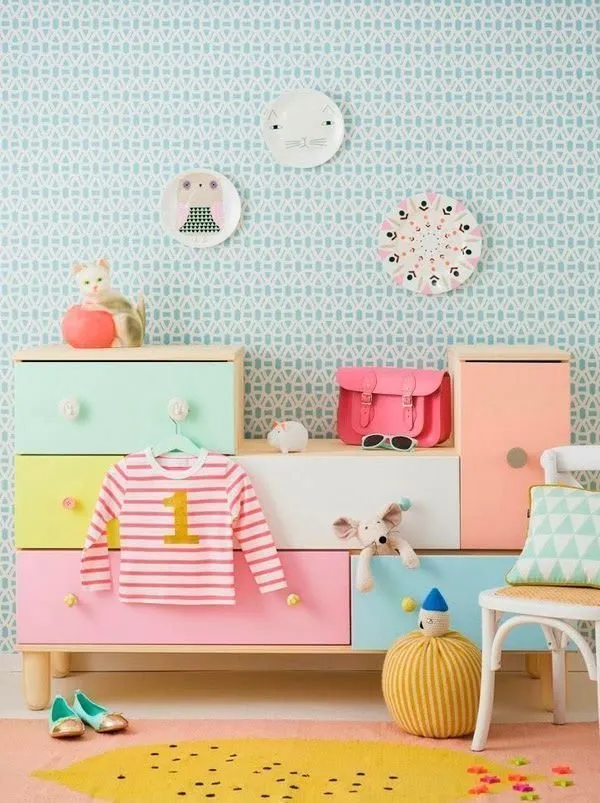
6. Why Do We Need This Chinese Teaching About Burial Places for Our Homes? Is It Foreign to Us?
Indeed, originally, feng shui was used for the layout of burial sites. The goal was to choose a place for burial that would be protected from floods, soil erosion, wind damage, and other natural phenomena. Chinese traditions for burying and honoring the deceased differ from ours, and feng shui’s purpose was to ensure that the “home” of the deceased was well protected by the landscape.
The same basic principles apply to residential feng shui: choose a good location for the house and organize internal space so that residents feel safe and comfortable.
There Are Still 10 Myths About Feng Shui That We've Tested for Validity.
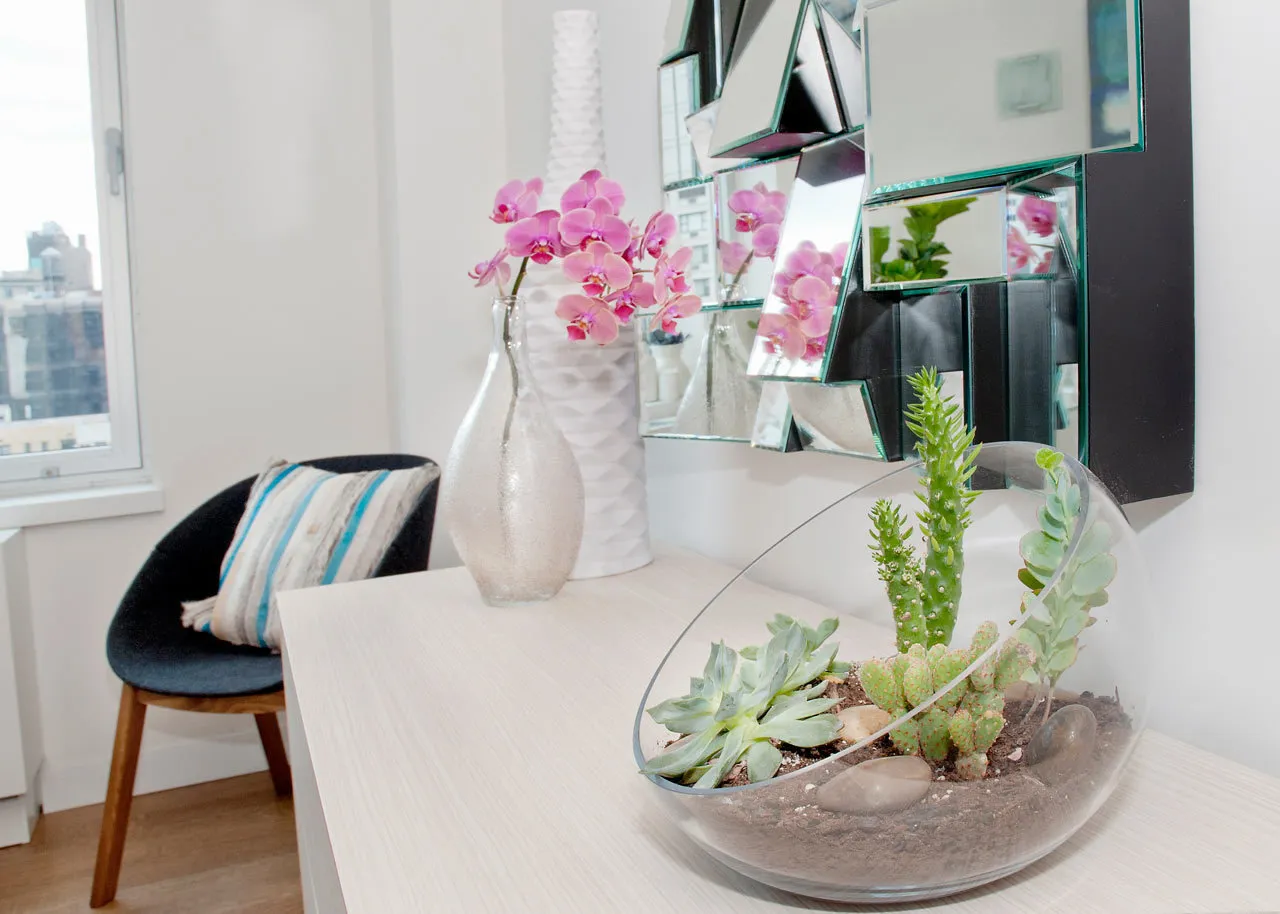
7. Is It True That It's Better to Sleep with Your Head Facing North?
Unfortunately, that’s not true. When positioning a bed, we first consider the layout of the bedroom and only then the favorable directions calculated individually for each person.
The optimal bed placement is in a spot where energy accumulates most, diagonally from the entrance with the headboard facing a wall, so that windows and doors are within visual control.
How to Arrange a Bedroom According to Feng Shui: 5 Tips from an Expert.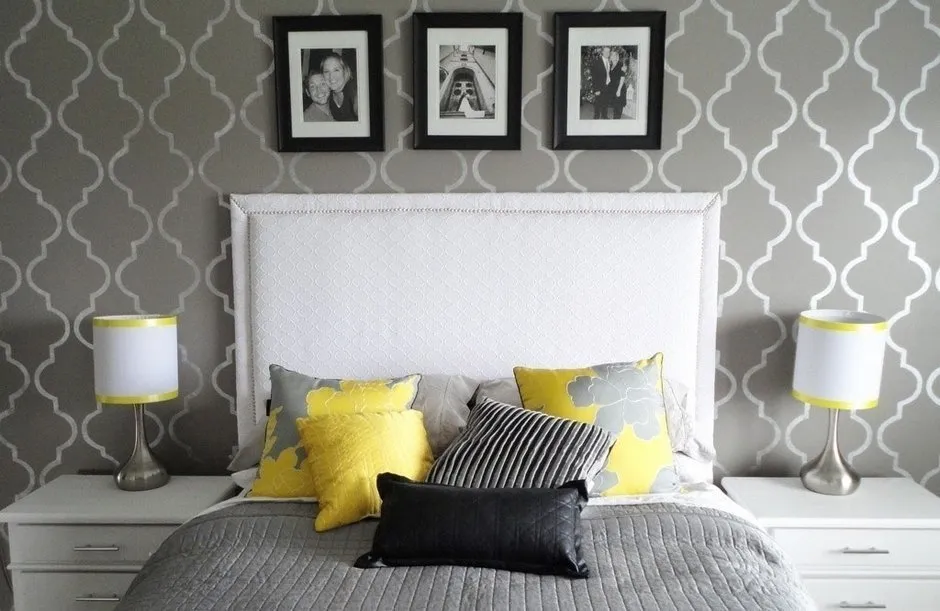
Interesting to Know:
- Rating of the Worst Beds According to Feng Shui
- 9 Feng Shui Tips for Owners of Small Apartments
- How to Buy Your Dream Apartment: 8 Secrets You Must Know
Need a renovation specialist?
Find verified professionals for any repair or construction job. Post your request and get offers from local experts.
You may also like
More articles:
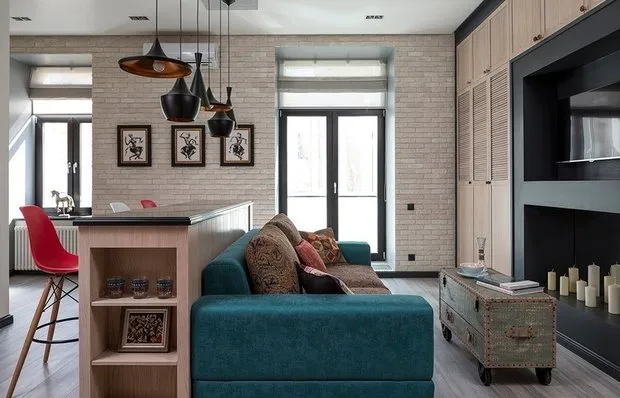 How to Furnish a Studio: 10 Examples
How to Furnish a Studio: 10 Examples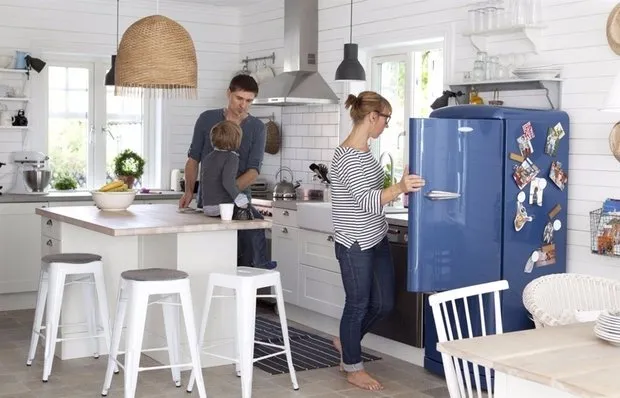 How to Improve Living Conditions Using Maternity Capital
How to Improve Living Conditions Using Maternity Capital How to Calculate the Cost of Renovation Yourself
How to Calculate the Cost of Renovation Yourself Decorating a Closet Like Carrie Bradshaw and Big
Decorating a Closet Like Carrie Bradshaw and Big Report from High Point 2017: hottest trends
Report from High Point 2017: hottest trends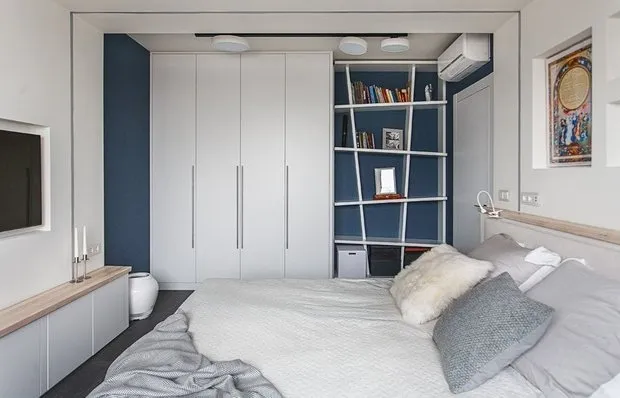 3 Layout Options for a 2-Room Apartment for Those Who Have Lots of Things
3 Layout Options for a 2-Room Apartment for Those Who Have Lots of Things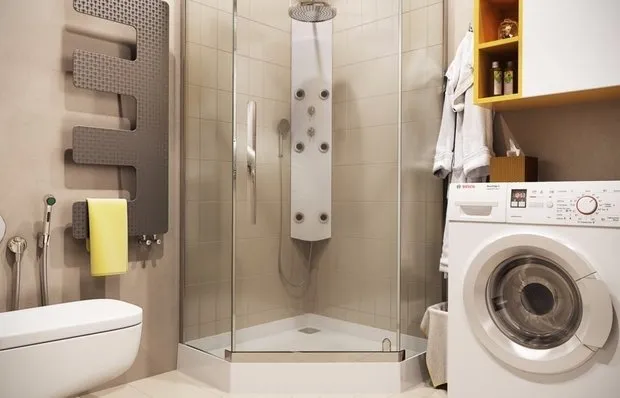 Making a Shower in a Small Bathroom: Tips + Example
Making a Shower in a Small Bathroom: Tips + Example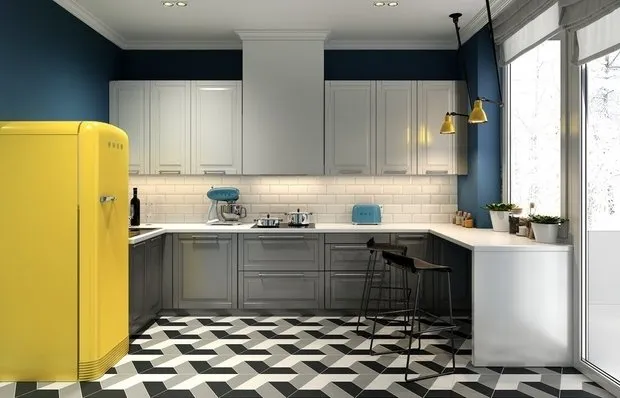 How to Place Household Appliances on the Kitchen: 8 Ideas
How to Place Household Appliances on the Kitchen: 8 Ideas